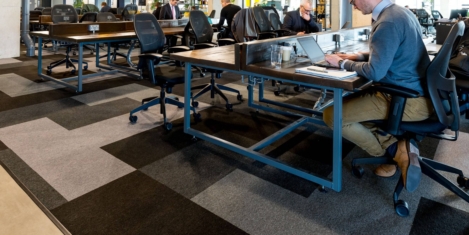July 17, 2018
Businesses told to consider the interests of workers and other stakeholders in new code
 The Financial Reporting Council (FRC) has published its new Corporate Governance Code in a bid to improve trust in UK business. The new Code will remain on the “comply or explain” basis mandatory for which it has been criticised in the past, but has been broadly welcomed by industry bodies. The code sets out a number of recommendations aimed at improving culture and trust in business, of which it suggests at least one be applied. They include having a director appointed from the workforce, a formal workforce advisory panel and a designated non-executive director. The Code will apply to accounting periods from January 2019 and is applicable to all companies with a premium listing.
The Financial Reporting Council (FRC) has published its new Corporate Governance Code in a bid to improve trust in UK business. The new Code will remain on the “comply or explain” basis mandatory for which it has been criticised in the past, but has been broadly welcomed by industry bodies. The code sets out a number of recommendations aimed at improving culture and trust in business, of which it suggests at least one be applied. They include having a director appointed from the workforce, a formal workforce advisory panel and a designated non-executive director. The Code will apply to accounting periods from January 2019 and is applicable to all companies with a premium listing.













 Improved living standards, deflating pension pots and legal protection against age discrimination have all helped to nudge up the retirement age. The result is that for the first time since the Industrial Revolution five generations of employees are now working side by side. According to a new survey, two thirds of organisations (66 per cent) say that an age diverse workforce helped the company to have a more comprehensive skillset and knowledge base and more than seven in ten (71 per cent) felt that a multi-generational workforce brought contrasting views to their organisation. However, in the YouGov survey of middle market businesses commissioned by RSM, four in ten companies (41 per cent) said that a multi-generational workforce also increased the risk of conflict in the workplace.
Improved living standards, deflating pension pots and legal protection against age discrimination have all helped to nudge up the retirement age. The result is that for the first time since the Industrial Revolution five generations of employees are now working side by side. According to a new survey, two thirds of organisations (66 per cent) say that an age diverse workforce helped the company to have a more comprehensive skillset and knowledge base and more than seven in ten (71 per cent) felt that a multi-generational workforce brought contrasting views to their organisation. However, in the YouGov survey of middle market businesses commissioned by RSM, four in ten companies (41 per cent) said that a multi-generational workforce also increased the risk of conflict in the workplace. 






 The majority of employees are disappointed with their company’s lack of investment in technology, and despite the fact three quarters (76 percent) want to request flexible working – almost half still don’t have the option of working more flexibly, a new report from a technology company claims. According to the survey by technology company Ingram Micro Cloud UK, in collaboration with technology company Microsoft, despite the fact that Millennials and Centennials are often thought to be the driving force behind changing workplace practices – and are often derided in popular discourse for having unreasonable and unrealistic expectations – the calls for change are coming from all segments of the workforce. However, 85 percent of Millennials admit to procuring their own workplace technologies such as instant messaging, Skype, file hosting and sharing tools (all available from Ingram Micro Cloud) that aren’t supported or provided by their employer, which raises major security issues, acco.
The majority of employees are disappointed with their company’s lack of investment in technology, and despite the fact three quarters (76 percent) want to request flexible working – almost half still don’t have the option of working more flexibly, a new report from a technology company claims. According to the survey by technology company Ingram Micro Cloud UK, in collaboration with technology company Microsoft, despite the fact that Millennials and Centennials are often thought to be the driving force behind changing workplace practices – and are often derided in popular discourse for having unreasonable and unrealistic expectations – the calls for change are coming from all segments of the workforce. However, 85 percent of Millennials admit to procuring their own workplace technologies such as instant messaging, Skype, file hosting and sharing tools (all available from Ingram Micro Cloud) that aren’t supported or provided by their employer, which raises major security issues, acco.


 Employers with over 250 employees are more likely to have a significant absence issue among staff says new research from Group Risk Development (GRiD). According to HR decision makers companies with over 250 employees have the highest absence rates – averaging 7.5 days per year yet micro businesses with between 1-9 staff only see their staff take an average of 2.8 days absence per year. Five per cent of HR decision makers also admitted to not recording or monitoring absence at all, although this is more prevalent amongst SMEs (6 percent) than those with over 250 employees (1 percent).
Employers with over 250 employees are more likely to have a significant absence issue among staff says new research from Group Risk Development (GRiD). According to HR decision makers companies with over 250 employees have the highest absence rates – averaging 7.5 days per year yet micro businesses with between 1-9 staff only see their staff take an average of 2.8 days absence per year. Five per cent of HR decision makers also admitted to not recording or monitoring absence at all, although this is more prevalent amongst SMEs (6 percent) than those with over 250 employees (1 percent). 







July 11, 2018
A beauty industry veteran makes the case for corporate wellness
by Leena Jain • Comment, Wellbeing, Workplace design
(more…)